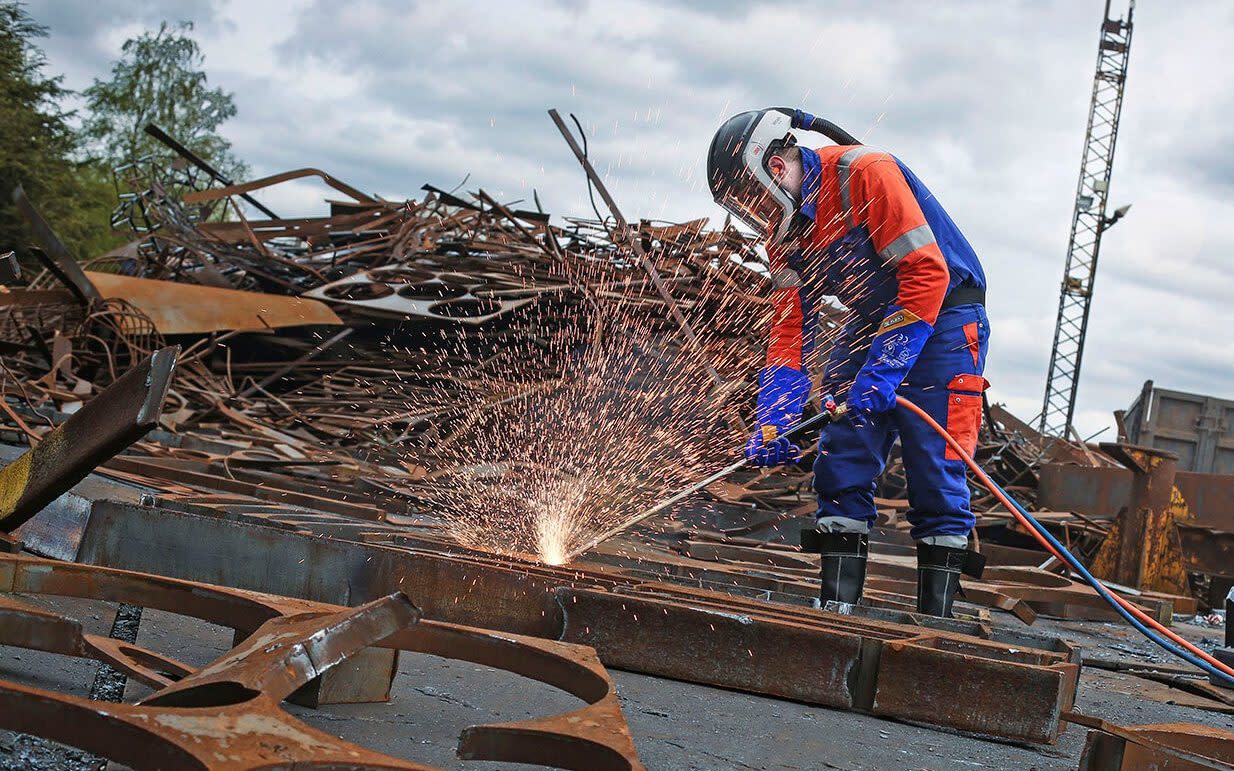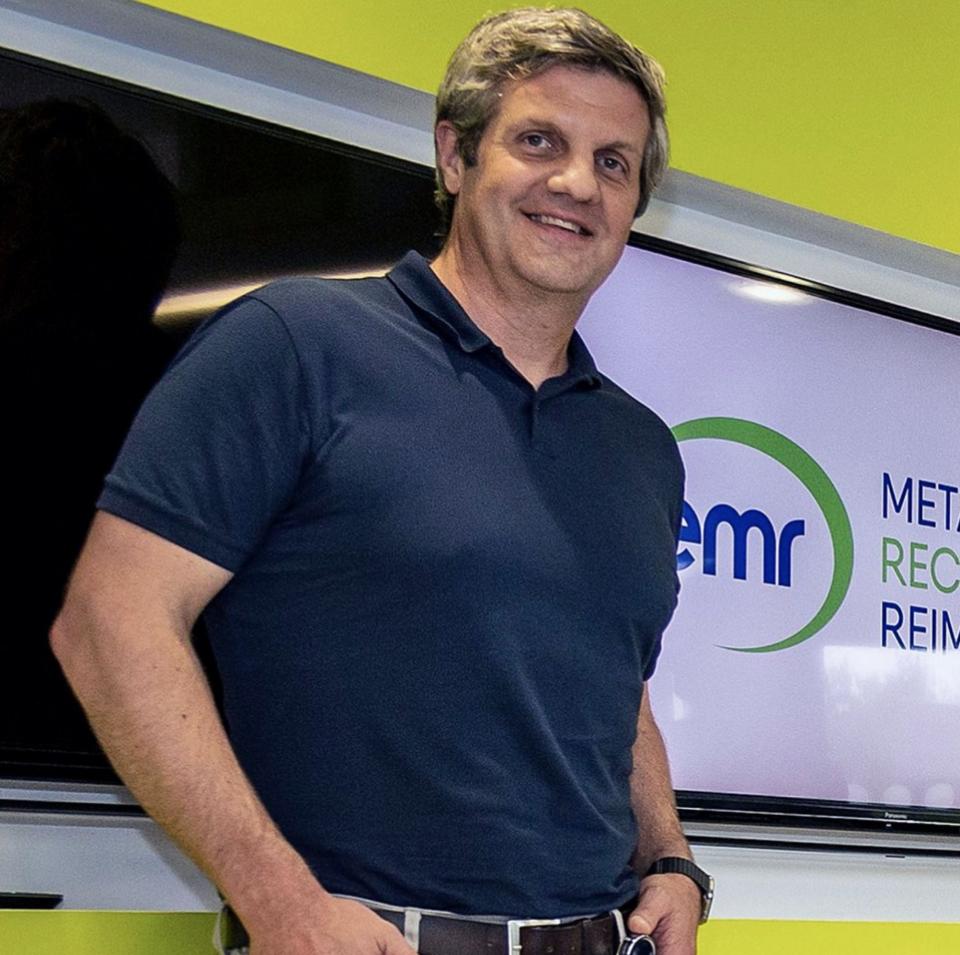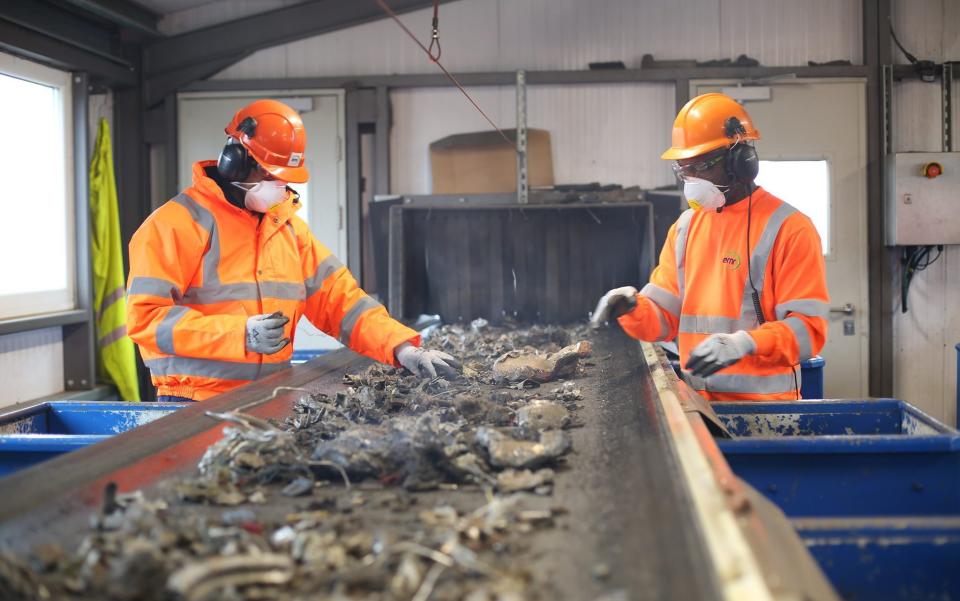The secret billionaire scrap dealer making a killing on car shortages

The little known family behind the UK’s biggest private scrap merchant is verging on billionaire status as profits and revenues at their business soar.
Warrington-based European Metal Recycling is emerging as one of the UK’s largest private companies after posting profits of £250m on sales of £4.7bn last year.
EMR is led by Chris Sheppard, the son of the company’s founder, Phillip, who was dubbed “the god of metal recycling” in the press.
It has recently been capitalising on booming steel prices and reaping profits from its steady expansion in the US over the years, Mr Sheppard said in an interview.

While last year might prove a one-off for high profits, the company’s longer-term track record would probably attract a valuation of at least £1bn, according to an estimate from a City source.
The company is owned by Ausurus Group, which is controlled by the Sheppard family.
Ausurus has net assets of £723m, which would usher it into the FTSE 250 if it were listed today. But this is probably a conservative estimate, according to one valuer, who said a business with similar profits would probably fetch a price of at least £1bn.
Recycled prices for steel were about $475 (£392) per tonne at the beginning of last year, the highest seen in a decade, as buyers scrambled to get their hands on the metal to restart projects stalled by the pandemic.
EMR also recovers copper from wiring and plumbing and benefited from all-time high prices of $10,725 per tonne last May.
Prices have crashed since Russia’s invasion of Ukraine amid fears about a slowdown in global growth, but EMR said its strong finances should help it weather the slump. It employs 3,700 people, more than half in the UK, and most of the rest in the US.
“The prices of metals are just really driven by that unsatisfied demand. And the supply chain disruption just meant that supply chains didn't keep up; you see that when you're trying to buy a new car at the moment,” Mr Sheppard said.
“Covid really has a profound effect on supply chains. And that's just now been exacerbated by the Russian war in Ukraine.”
About 30pc of the company’s recovered steel stays in the UK, with the rest finding its way to northern Europe, the US, India and Asia, with Turkey one of the largest markets. Turkey and the US have much more capacity to use recycled steel than the UK, Mr Sheppard said.
His business has an advantage in attempts to decarbonise the steel sector, which has one of the most difficult paths to net zero.
Recycled steel produces less than a third of the carbon emitted by the blast furnaces of the primary steel sector. Globally, the recycled steel market is about 600m tonnes a year compared to 2bn tonnes for primary steel, a large gap for growth.
“What we're seeing now is we're seeing a desire to make higher quality recycled products. And it's possible to do that,” Mr Sheppard said.

A third of EMR’s business is from the cars, tin cans and fridges many associate with scrap, although Mr Sheppard said he prefers his product to be referred to as recycled steel.
Another third is steel and pipes recovered from demolished buildings, and the final third comes from industrial projects, such as BT’s efforts to replace its copper wire network with fibre optic cable.
“There's a significant demand for green metals at the moment, which are aluminium and copper,” Mr Sheppard said. “And our recycled raw materials have got a much lower carbon footprint so they're of increasing interest, I think, in this new world that we find ourselves in.”
Mr Sheppard said his family has no plans to list or sell the business, which traces its roots to the 1940s.
“We're a long-term family business. I just see continued growth with a long-term view,” he said. “Certainly, we try and hold ourselves to the same standards as a public company.”

 Yahoo Movies
Yahoo Movies 
